Clearing NHS backlog will take years, Glasgow doctor warns
- Published
- comments
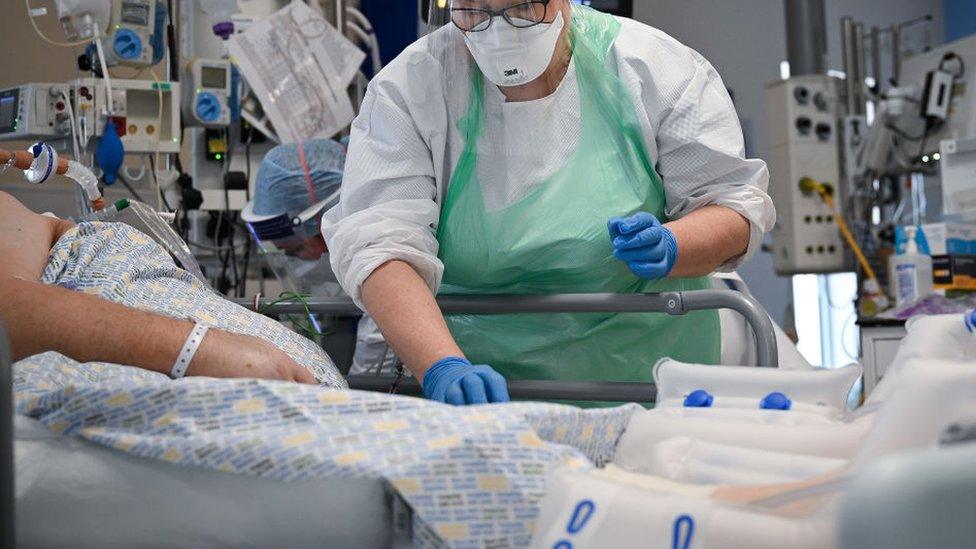
A senior doctor has warned that clearing the waiting list backlogs that have built up in the NHS over the pandemic will take years.
NHS Greater Glasgow and Clyde's Colin Mckay said pressure was relentless and the number and complexity of emergency patients was different since Covid.
He said this meant patients requiring more complicated surgery and spending longer in hospital recovering.
The Scottish government said ambitious plans were in place for NHS recovery.
Prof Colin Mckay: "There's never been anything like this, the last two years have been relentless."
Prof Mckay told the BBC he had "never seen anything like" the situation in Scotland's hospitals over recent years.
"There's never been anything like this, the last two years have been relentless," he added.
He said the number of Covid positive patients was gradually coming down, and the majority of them were being admitted because of other conditions rather than because they were ill with the virus.
However, he said, the number of emergency patients and the complexity of patient conditions was very different to how it was before the pandemic.
"It means that patients now spend longer in hospital, the surgery they require is more complex and all of this has an impact on service across the board," he said.
Asked how long it would take to clear the backlog, he told the BBC: "It's going to take years to catch up on the backlog that's built up and we have to be honest about that from the outset.
"We would love to say that when this is all over we will rapidly get back to normal and the backlog will clear but I think we all know that is not the case."
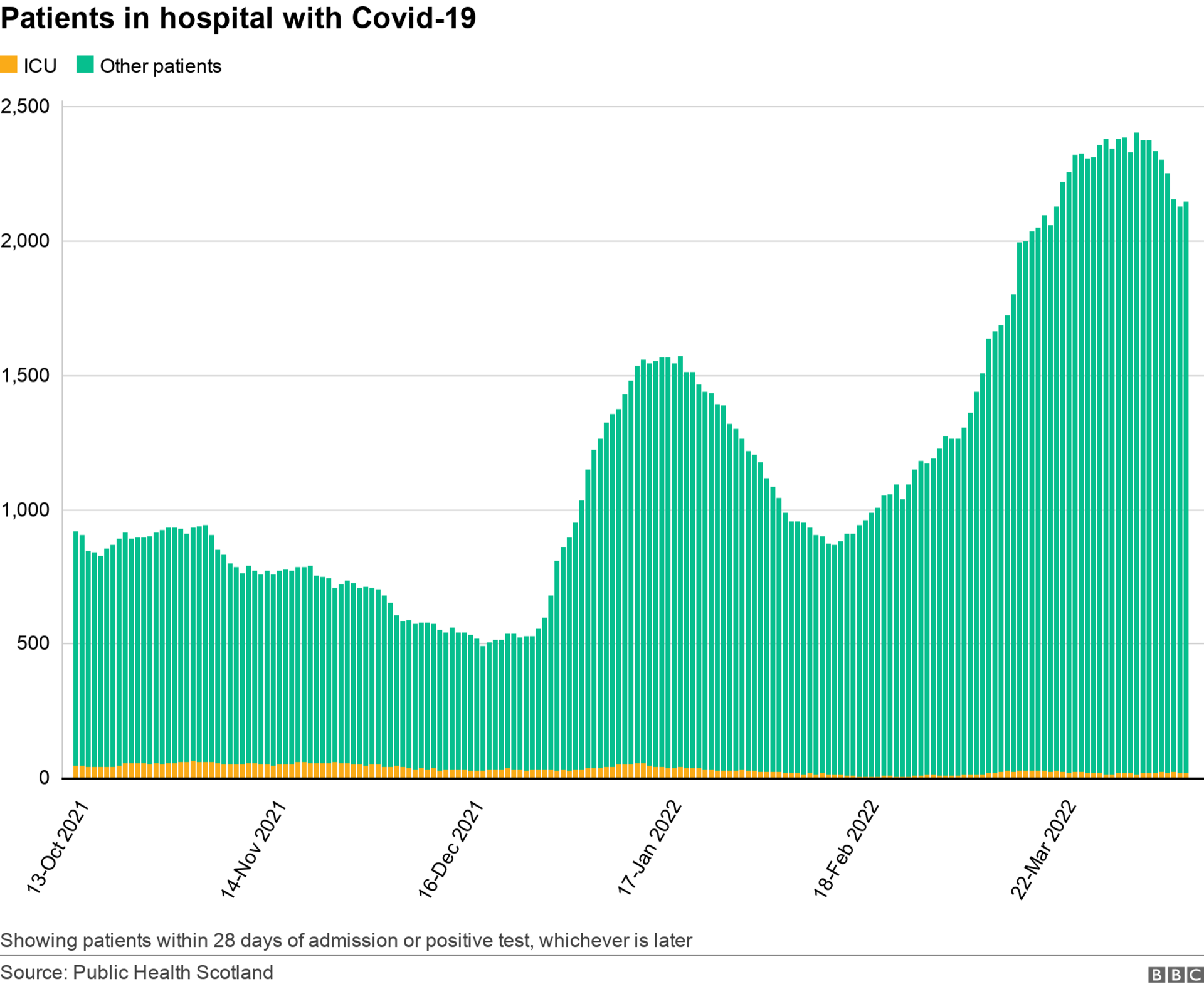
There were almost 5,000 Covid cases reported on Tuesday according to Public Health Scotland figures, external and there were more than 2,000 patients in hospital with the virus.
That is compared with more than 1,500 Covid patients in hospital during the first peak of the outbreak in spring 2020.
It was over 2,000 again at the beginning of this year as the Omicron variant led to a new surge in cases.
However, the numbers being treated in intensive care are lower now than they were early in the pandemic, partly due to vaccination and improved medical treatments.
Patient Elizabeth Gamper challenges Scotland's health secretary Humza Yousaf during his visit to a Scottish hospital
A Scottish government spokesman said: "The pandemic has seen our NHS under the most severe pressure in its 73-year existence. Pausing of non-urgent activity has taken place in health systems across the UK and has inevitably led to a build-up of numbers waiting for treatment.
"Our £1bn NHS Scotland Recovery Plan sets out plans and ambitions for recovery. This will support an increase in inpatient, daycase and outpatient activity to address the backlogs of care - including through the creation of 10 national treatment centres to significantly increase capacity to deliver planned care."


There continues to be a bottleneck at A&E, people stuck on trollies waiting for beds, stuck in ambulances waiting for space, and such delays bring an increased risk that patients will come to harm.
The problem that the health service faces is with patient "flow" through the hospital and beyond and there are a number of reasons for this.
The first is with beds in hospitals. There are increasing numbers of patients whose illness has become more advanced or complex because of delays in their treatment and they need to stay in hospital for longer. Then there are patients who are ready to go home but because social care is so stretched, care packages cannot be put in place or there are a lack of spaces in care homes.
And there continues to be high numbers of Covid patients in hospital many of whom will have tested positive after being admitted for something else.
It is an improving picture but is still a cause of significant disruption. There are some who believe that if the NHS is to turn a corner on this particular Covid wave, the strict testing of patients and staff, alongside isolation protocols in hospitals will have to change.

Public health expert Prof Linda Bauld said there were signs that the Omicron wave was slowing down, in terms of positive cases and number of patients in hospital.
However, she said there were still many staff absences causing disruption in the workforce, and many cases in the population of people catching Covid for a second or even a third time.
Official figures published on Tuesday showed that 11% of the new cases reported in Scotland were reinfections.
"We're in this tricky period in the pandemic, where it's not as severe as it was but it's still causing huge disruption," she added.
Prof Bauld noted that things would probably stabilise - as long as there was no new variant.
She continued: "We need to be worried about two things - seasonality, probably, with more infections coming back in the autumn and winter and then the big one is a new variant and will the vaccines hold up against that."
She added that it was "going to be a bumpy ride" but urged the public to focus on the positives including vaccinations and effective treatments.
Prof Bauld said she believed there would be a need to revaccinate.
Related topics
- Published13 April 2022
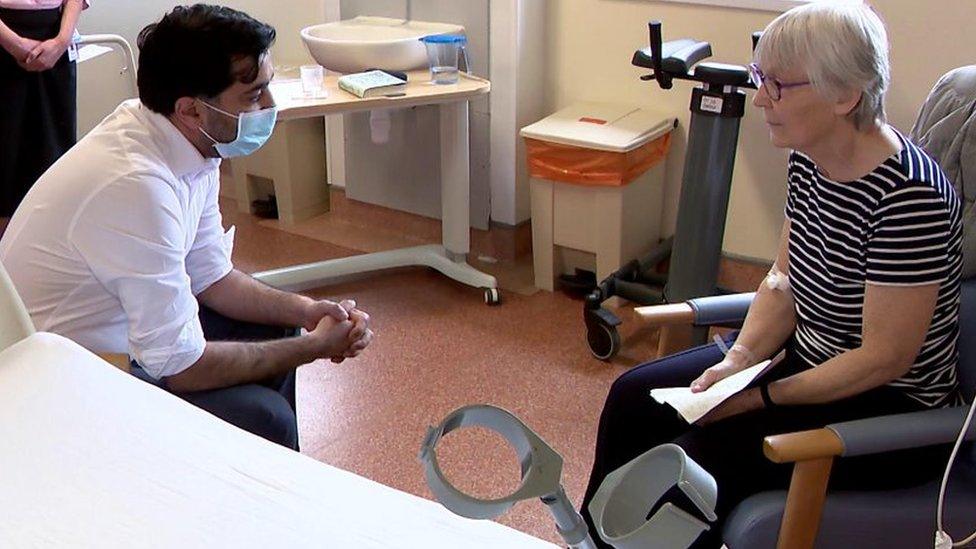
- Published23 October 2021
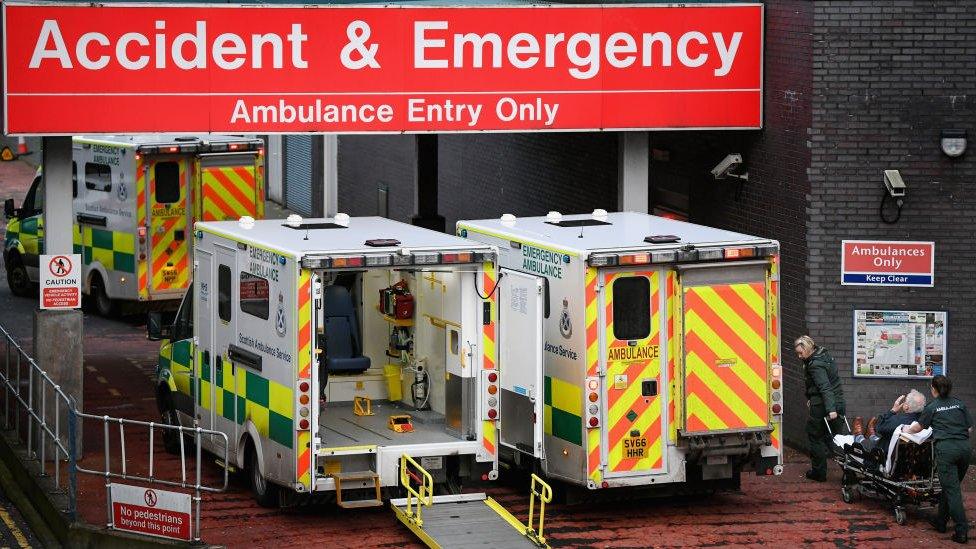
- Published8 September 2021
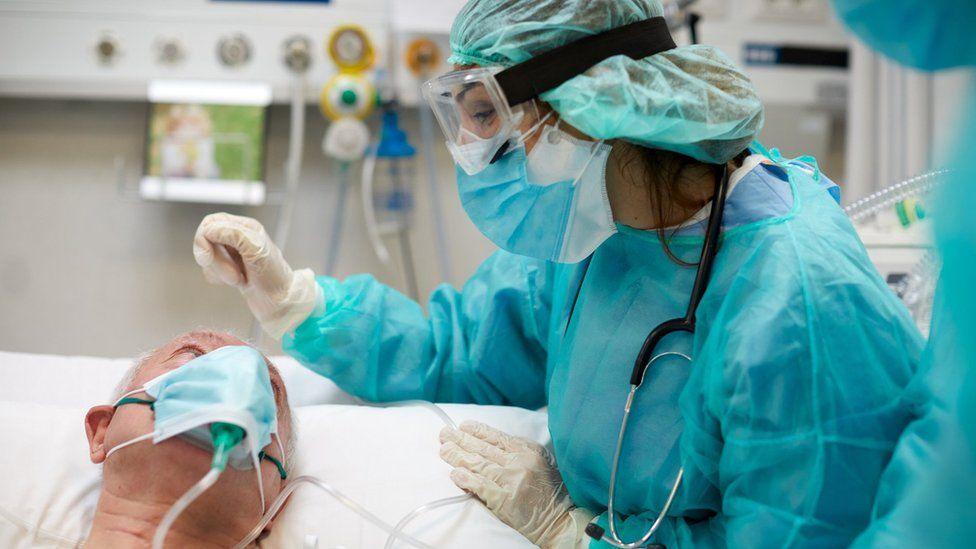
- Published5 July 2023
